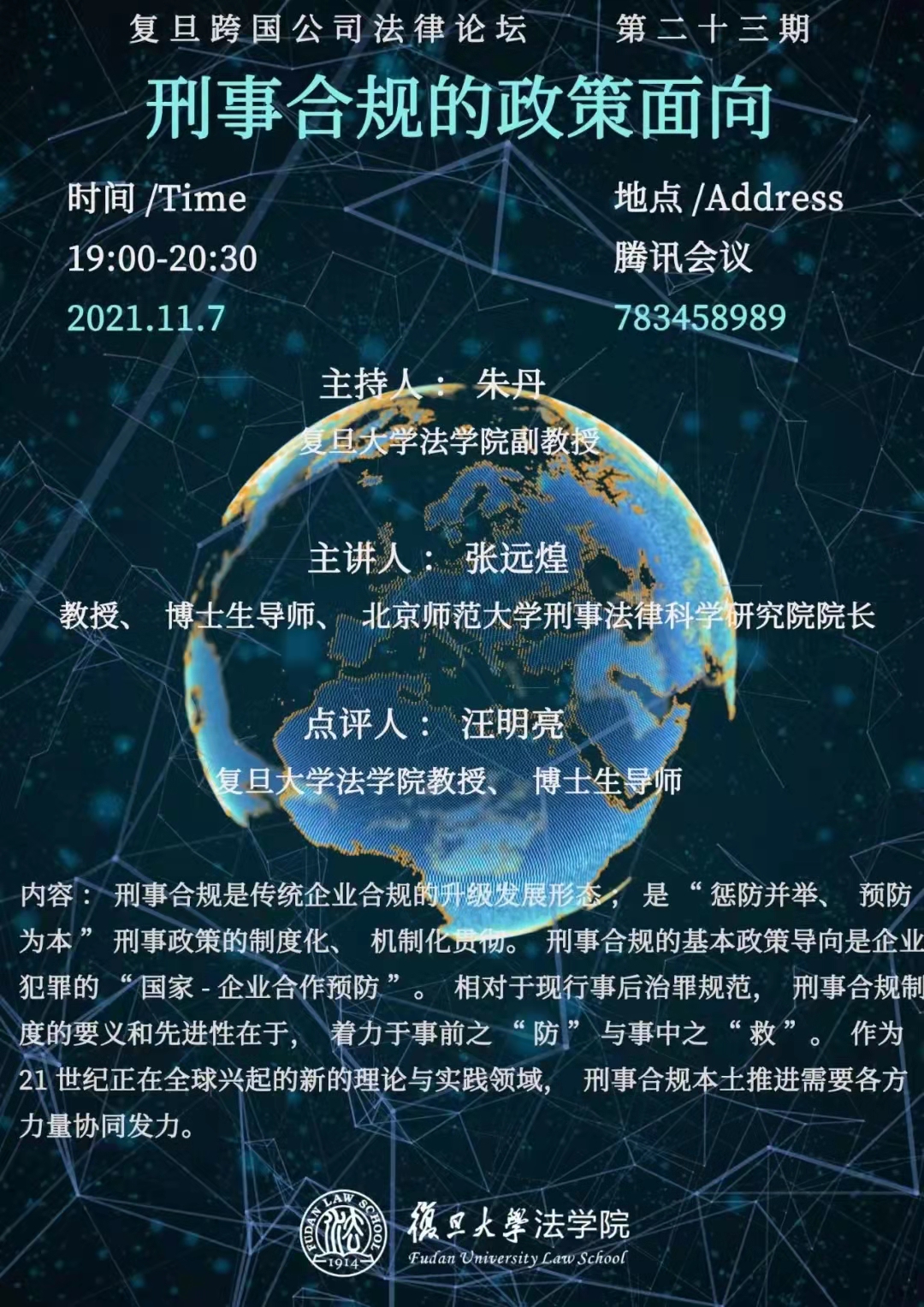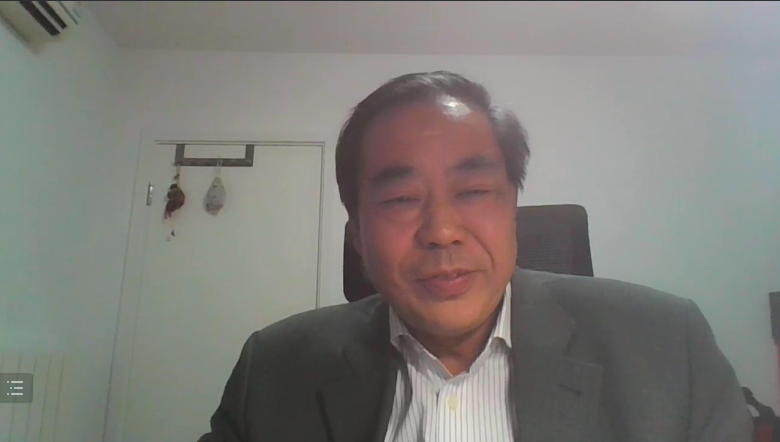

On November 7, 2021, the twenty-third keynote speech of the "Fudan Transnational Corporations and Law Forum" was held successfully online. This speech titled "The Policy Orientation of Criminal Compliance" was hosted by Associate Professor ZHU Dan of Fudan University Law School, delivered by Professor ZHANG Yuanhuang of Beijing Normal University Law School, and commented by Professor WANG Mingliang of Fudan University Law School.

Professor Zhang mainly addressed three questions in the lecture. The first is related to the pragmatic motivations for the creation of a criminal compliance system by states. Although corporate compliance contains a "law-abiding and self-disciplined" mechanism, it is inadequate to promote law observance and crime prevention because of the fundamental and structural contradiction between the high compliance cost and the relatively low cost of non-compliance. If states always stick to the policy of ex-post punishment, it would be difficult for them to prevent the disordered expansion of capital. As such, corporate compliance gradually evolves from corporate self-regulation in the context of corporate governance to criminal compliance, which clearly reflects state will.
The second question addressed by Professor Zhang was the policy objectives and values of criminal compliance. The former lies in the formation of a new governance pattern of "cooperative prevention" of corporate crimes. The latter rests with the pursuit of good law and good governance of corporate crimes. Good law and good governance require the creation of criminal incentive mechanisms, forming a combination of external supervision and self-regulation of corporate crimes.
The third question concerned the basic structure of the criminal compliance system. It includes compliance elements, the determination of corporate responsibility, incentive mechanisms, and effectiveness monitoring, which respectively focuses on prevention guidelines, the establishment of prevention responsibilities, preferential treatment for compliance, punitive mechanisms for violators, standards and evaluation mechanisms. Professor Zhang considered that corporate compliance would ultimately demand effective compliance that accords with the logic of prevention. Effective compliance is the soul of criminal compliance and is pivotal to achieving policy objectives.
Lastly, Professor Zhang concluded that criminal compliance is the development of traditional corporate compliance. Rather than being a single institutional innovation, it represents the evolution of the perception and paths of criminal governance, the development of the conception and model of corporate governance, and the upgrade of the legal service industry and theoretical research.

In the commenting session, Professor Wang put forward two points. First, he highlighted three major transitions of criminal compliance: from ex-post punishment to ex-ante prevention, from single to multiple subjects of governance, from mere ex-post punishment to a combination of ex-post punishment and redress. Second, he summarized three major inspirations from criminal compliance: the institutional construction and governance conception of corporate crimes differ from those of crimes committed by natural persons; policies prevail over law in corporate crime governance; sometimes, the social effects of corporate crime governance should be prioritized over its legal impacts. Then Professor ZHANG and Professor WANG had an academically stimulating discussion with the audience in the Q&A session.
On November 11, 2021, the Forum will host the twenty-fourth keynote speech titled "Violations (bribes) and compliance in international business activities" by WANG Xiumei, Professor of Beijing Normal University Law School.






